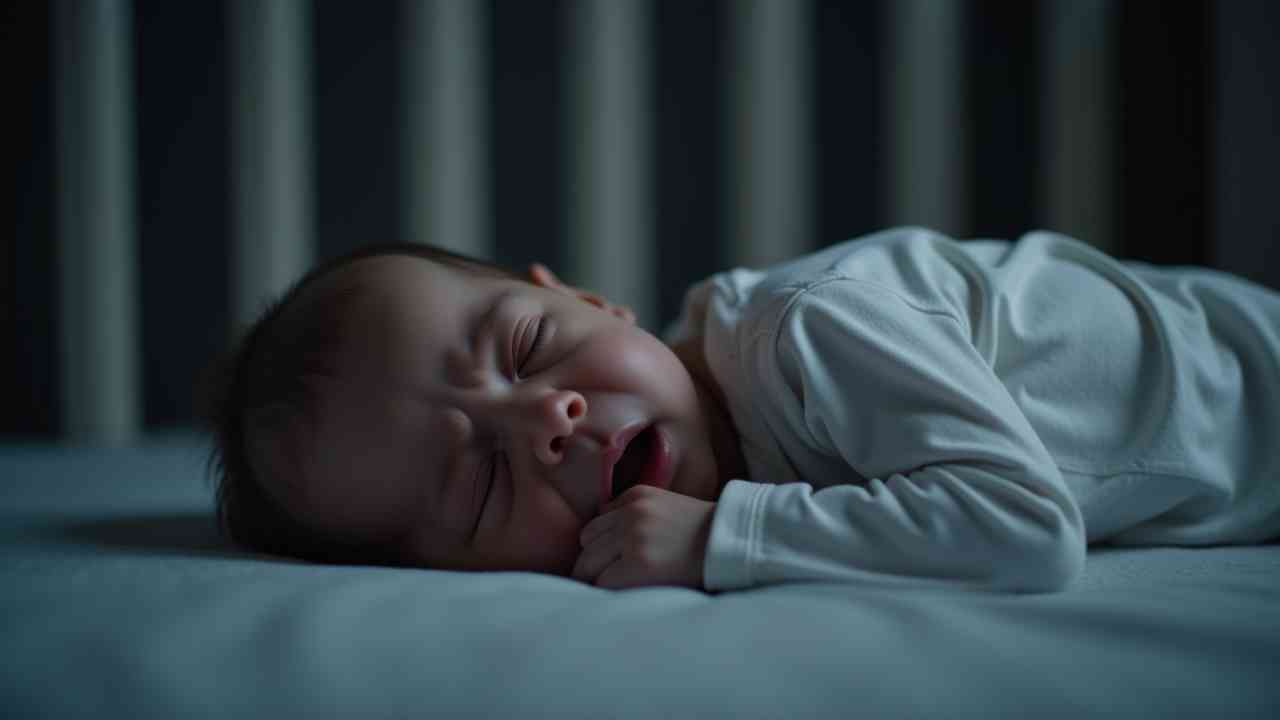
👶 Why Is My Newborn Crying in Sleep? A Parent's Guide
👶 Why Is My Newborn Crying in Their Sleep? (And Is It Normal?) 👶
As a new parent, you listen intently to every sound your baby makes. So, when you hear your newborn whimpering, fussing, or even letting out a full cry while they are fast asleep, it can be very worrying. Your first instinct is to rush in and comfort them. But in most cases, a newborn crying in sleep is a completely normal and healthy part of their development.
Understanding the fascinating world of newborn sleep can help you respond appropriately and give you much-needed peace of mind. This guide will explain why this happens and when you should actually be concerned. Let's explore the sleepy sounds of your new baby. ✅
🤔 First, What is the #1 Reason Newborns Cry in Their Sleep?
The single biggest reason for this seemingly strange behavior is something called Active Sleep. A newborn's sleep is very different from an adult's. They spend about 50% of their sleep time in this light, active stage, which is the equivalent of REM sleep.
During active sleep, your baby's brain is working overtime! They are processing all the information from their day and forming new neural connections. This intense brain activity manifests physically. You will see them:
- Twitching their arms and legs.
- Smiling, grimacing, or frowning.
- Making sucking motions.
- Whimpering, grunting, or even crying out.
These vocalizations are simply a byproduct of their active, dreaming brain. They are not actually awake or in distress. It is a sign of healthy neurological development.
- What Are Other Common, Normal Reasons?
Beyond active sleep, a few other normal bodily functions can cause your newborn to cry out without waking up.
- Passing Gas or Pooping: A newborn's digestive system is very immature. The process of passing gas or having a bowel movement is a new and sometimes uncomfortable sensation for them. They may grunt or cry out as they work through it, all while remaining asleep.
- Startle (Moro) Reflex: Newborns have a primitive reflex that can cause them to suddenly fling their arms out. This jarring motion can cause them to let out a brief cry without fully waking. This is one of the main reasons swaddling is so effective.
- When Should You Actually Be Concerned? ⚠️
While most sleep-crying is normal, there are times when it can be a sign that your baby truly needs you. You should be concerned and check on your baby if:
- The Crying Escalates: The cries become stronger and more sustained, and it is clear your baby is fully waking up and is inconsolable.
- They Seem to be in Pain: The cry is high-pitched or sounds different than their usual cries.
- It's Accompanied by Other Symptoms: Your baby also has a fever, is refusing to eat, or seems unusually lethargic when they are awake.
In these cases, the crying is a signal of a real need, like hunger or discomfort, and you should respond. If you are ever truly concerned, always trust your instincts and call your pediatrician.
⭐ What is the Best Thing to Do (and Not Do)?
The number one rule when you hear your newborn crying in sleep is to PAUSE. Wait for a minute or two before you rush in. More often than not, you will see them settle back into a quiet sleep on their own. Rushing in to pick them up can actually wake them up unnecessarily.
If the crying continues and they seem to be waking, then it is time to intervene. Check for the obvious culprits first: are they hungry? Do they need a diaper change? Are they too hot or too cold? Address the need quietly and with minimal stimulation to help them get back to sleep quickly. The cool autumn nights here can be chilly, so a cozy but safe sleep sack is a great choice. 🍂